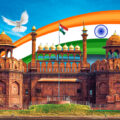
I will provide you a well-known POV: There is a road, which houses the city’s most sought-after coaching centres. On that road there is a loud commotion of young teenagers. They have in their hands books and futures, on their face glasses and stress, and on their shoulders bags and responsibilities. Single out a random kid from the crowd (it won’t make much of a difference because they are now a unit) and ask him or her about their day.
There is a ‘big’ probability that they have the same sort of life. Or else, ask them to calculate the probability—most of them study mathematics or physics. They stick their noses in fat books all day, hardly doing anything else. Some might even be in the 6th or 7th grades, young 12-year-olds. They are prematurely becoming like their young adult counterparts. They live for studying and study for living, preparing for competitive exams before they even start secondary school, and have decided to make this the rest of their life. But the irony? Quite a lot of them don’t like what they are doing. They don’t like it, don’t get it, and deep inside, they don’t even want to do it. Crores of students seemingly have the deepest desire to pursue only a few occupations that now exist, which you can count on the fingers of one hand. But the thing is, they don’t. T
They are living in compromise, and have planned to pull it off their whole lives, for just a bit of money and society-induced ‘self-satisfaction’. In many cases, there is no actual passion for the occupation per se; they just want to be in it for the hefty money packages offered to 1 out of 1,000, which is a really unhealthy relationship to have with your career and future. And this is our youth, and the citizens of future India. Needless to say, we have a problem on our hands here.
Don’t get me wrong, a good education is always welcome, especially in a country like India, which has to tap into the potential of its abundant and capable youth. But the problem lies not in pursuing goals or having good careers; it lies in the stress, anxiety and missing out on the beauty and enjoyment in life, which so often comes as a complimentary package with ‘today’s career preparation’.
In fact, we can put it the other way round and it will sound just as meaningful, if not more. Something has to be done for the present and the future of these ‘aspirants’, who constitute a large part of Indian youth, especially in the middle- and upper-middle class groups.































